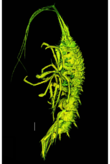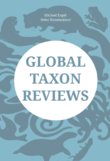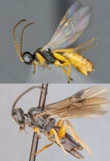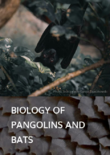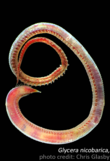Special Issue "Proceedings of the 18th International Symposium on Trichoptera"
Special Issue Editors
Special Issue Information
Special Issue "New deep-sea Amphipoda from Clarion-Clipperton Zone"
Special Issue Editors
Special Issue Information
In recent decades the World has been faced with the Anthropocene extinction. Discovery of species new to science is increasing in pace, but their formal description is a time consuming process. As a result, it is predicted that many species will become extinct before they are described. This is particularly important in deep-sea environments, where there is so much yet to discover. At the same time there is a growing interest in their exploration and future use e.g. for deep-sea mining. To speed up the description process of deep-sea species, the International Seabed Authority within the Sustainable Seabed Knowledge Initiative started “One thousand reasons” project that aims to describe 1000 species new to science before 2030. Within this call a taxonomic workshop: “New species of Amphipoda from the Clarion-Clipperton Zone” held in 2024 (5th – 14th February) at the University of Lodz, Poland was granted. It gave the momentum for description of multiple species from the central Pacific abyss.
This Special Issue is dedicated to publications of the new deep-sea amphipod species that were described as a result of the project. However, other manuscripts that describe new amphipod species from Clarion-Clipperton Zone are also welcome.
Special Issue "Research on Chrysomelidae 10"
Special Issue Editors
Special Issue Information
This special volume, Research on Chrysomelidae (RoC10) edited by Caroline S. Chaboo, Yoko Matsumura and Michael Schmitt, presents recent research that range from taxonomy and phylogeny to behavior and species interactions. Some of these articles emerged from oral and poster presentations at the 11th International Symposium of Chrysomelidae during the 27th International Congress of Entomology, Kyoto, Japan, 2024. This volume is another contribution in the RoC series began by Pierre Jolivet to promote communication and collaboration among leaf beetle researchers and make their results accessible to the general scientific public.
Topical collection "Caribbean Amphipoda of Panama"
Topical collection information
Select this topical collection at the end of the submission process.
Topical collection editors
Topical collection information
The Global Taxon Reviews is a topical collection of papers in the field of zoology that aims to provide comprehensive and up-to-date reviews of suprageneric taxa of significant diversity, with a special emphasis on taxonomy, phylogeny, and other aspects of taxon-centered biodiversity exploration. These reviews are intended to serve as authoritative resources for researchers, students, and enthusiasts interested in the inventorying, classification, evolutionary relationships of animals, and other related topics.
Each paper in the collection focuses on an entire taxonomic group, such as a class, order, family, subfamily or tribe, of any zoological taxon. Large genera distributed over one or more continents can be considered for publication in the collection as well. The authors of the papers should be proven experts in their respective fields, with extensive experience and knowledge of the group in question.
The reviews are typically structured to provide a comprehensive overview of a taxon, including information on its morphology, ecology, and distribution. A particular focus is placed on the phylogenetic relationships of the group. Priority will be given to manuscripts that specifically concentrate on widely distributed taxa. Manuscripts primarily focusing on high-ranked monotypic taxa can also be considered, but only if they are discussed within a broader context. We also encourage illustrated identification keys, as they provide an efficient way to recognize taxa.
The Global Taxon Reviews collection is designed to be a valuable resource for both researchers and students in the field of zoology, as well as for anyone interested in learning more about animal diversity and classification. By providing authoritative and up-to-date reviews of higher taxa, these papers can help in advancing our understanding of the astonishing diversity of animals at a global scale.
Realizing the importance of this series to the scientific community, the editorial team will consider special conditions for publication in the Global Taxon Reviews collection, including potential high discounts or waivers. These conditions will be evaluated on a case-by-case basis, taking into account individual circumstances and the overall merit of the manuscript.
Select this topical collection at the end of the submission process.
Topical collection "Contributions to the world fauna of Microgastrinae parasitoid wasps (Hymenoptera, Braconidae)"
Topical collection editors
Topical collection information
Select this topical collection at the end of the submission process.
Topical collection information
ZooKeys invites research publications on the biology of bats and pangolins with the aim to shed light on the factors that make certain organisms like bats and pangolins particularly efficient vectors of diseases capable of causing global emergencies and irreversible damages, such as COVID-19 (Coronavirus). The APCs for this upcoming collection will be waived.
By means of Open Science, ZooKeys aims to contribute with real-time findings and data to the efforts of scientific teams, experts and other decision-makers across the globe, in order to advance the world’s understanding of the transmission pathways and potential vectors of zoonotic diseases. By adding further knowledge to the key factors that pave the way for global public health emergencies, such quality research publications are to ultimately help the mitigation and prevention of similar devastating events in the future.
Select this topical collection at the end of the submission process.
Topical collection information
Guides to Australian Annelida aims to make the biodiversity data on Australian annelid fauna more widely accessible through keys and identification guides. Specialist taxonomic literature is difficult to access and to use, especially by non-taxonomists. This topical collection will provide a resource to facilitate identification of the phylum Annelida, at various taxonomic levels. Guides will assemble keys, reviews and other identification resources catering for the non-specialist, with an initial focus on the marine annelid (‘polychaete’) families – in particular, four families that encompass some of the most ecologically important and most frequently encountered species, and about 30% of all polychaete genera: Nereididae, Polynoidae, Serpulidae and Terebellidae.
Guides to Australian Annelida is the outcome of a 4-year research project collaboration between three Australian Museums (Australian Museum, Museum Victoria, Museum & Art Gallery Northern Territory), supported by a grant from the Australian Biological Resources Study, Canberra.
Select this topical collection at the end of the submission process.

